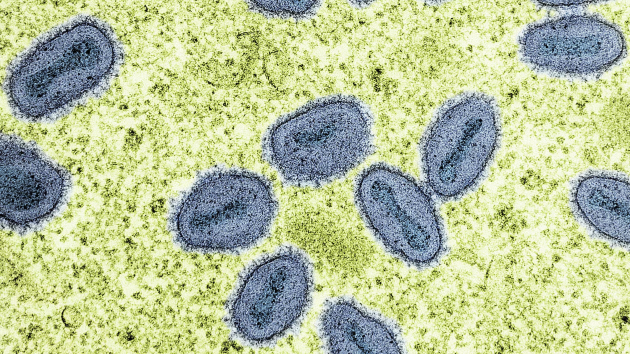
(NEW YORK) — Health officials in Los Angeles County said on Friday they are investigating a possible local spread of a more severe strain of mpox.
Two cases of the strain were identified among Los Angeles County residents with no recent travel history.
It comes after the first U.S. case of the more severe strain of mpox without known travel was identified in a patient from Long Beach, California, bringing the total number of cases in the state to three.
No clear link has been identified between the Los Angeles cases and the Long Beach case, according to Los Angeles County health officials.
“The confirmation of a third case with no travel history raises concerns about possible local spread in Los Angeles County,” Dr. Muntu Davis, Los Angeles County health officer, said in a press release. “We’re working closely with our partners to identify potential sources and understand how this potentially more serious type of the mpox virus may be spreading.”
There are two types of the virus that cause mpox: clade I and clade II, with clade roughly meaning they are descended from a common ancestor organism. Clade I has historically been associated with severe illness and death, and is endemic to parts of central and western Africa, according to the Centers for Disease Control and Prevention (CDC).
Clade II was responsible for a large outbreak that peaked in summer 2022, leading to more than 100,000 cases in 122 countries, including more than 30,000 cases in the U.S.
The less severe strain in the U.S. has continued circulating at low levels and has remained relatively stable.
Parts of Africa have been dealing with sustained person-to-person spread of the more severe strain of mpox. All six previously confirmed cases of the more severe strain in the U.S. have been among people who had recently traveled to areas associated with the outbreak in central and eastern Africa, according to the CDC.
In November 2024, California reported the first domestic case of the more severe strain in a traveler from Africa who experienced mild illness.
People with mpox, which was formerly known as monkeypox, often get a rash that can be located on hands, feet, chest, face, mouth or near the genitals, the CDC said.
Most people with mpox typically recover within two to four weeks without specific treatments.
Currently, the JYNNEOS vaccine, a two-dose vaccine approved by the Food and Drug Administration to prevent smallpox and mpox, is the only vaccine being used in the U.S.
The JYNNEOS vaccine is recommended for adults at high risk for mpox, which includes people who are gay, bisexual or other men who have sex with men and have recent or upcoming risk factors like multiple sexual partners, intimate contact with someone who may have mpox, or sex at commercial venues.
ABC News’ Mary Kekatos contributed to this report.
Copyright © 2025, ABC Audio. All rights reserved.



